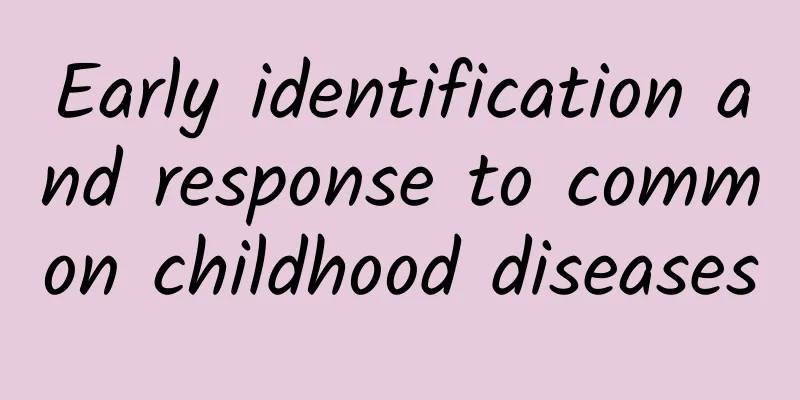What should I pay attention to after my hysterectomy?

|
Although medicine is relatively advanced now, there is no good way to treat uterine fibroids except hysterectomy. Many patients have various complications after their hysterectomy, both physical and psychological. Therefore, maintenance work after hysterectomy cannot be omitted. Today we will mainly learn about how to adjust the diet after hysterectomy. Following hysterectomy, you should pay attention to the following dietary considerations: 1. Avoid greasy food: because fat will accumulate, making wounds difficult to heal and weakening resistance to bacteria. 2. Increase protein intake: Protein-rich foods, including fish, meat, beans, eggs, and milk, can help wound healing and increase physical strength. You can choose more fish because fish is easier to digest and absorb. Remember to eat the meat and not just drink the soup. 3. Eat an appropriate amount of fruits and vegetables: Because fruits and vegetables are rich in vitamins and minerals, they can help the patient's wounds heal and increase the body's resistance. 4. Drink more water. 5. Do not eat foods that easily cause bloating: such as onions, cabbage, olives, soy products, etc. 6. Those who have had a total hysterectomy will no longer have menstruation. 7. 6-8 weeks after the operation, when the deep tissues in the pelvic cavity have recovered, you can have a normal sexual life. If you have undergone total hysterectomy, you should abstain from sexual life for 3 months and avoid heavy physical labor. After 3 months, you can resume normal work and life. 8. Avoid lifting objects heavier than 3 kg, bending over to pick up objects, and climbing stairs within 6-8 weeks after the operation. You can use a belly band appropriately. 9. Avoid sitting for long periods of time, long-distance travel, yoga, rhythmic dance and other exercises that may increase abdominal pressure within 3 months to avoid pelvic bleeding. Many women will experience varying degrees of decreased sexual function after a hysterectomy, which is mainly manifested by: lack of sexual desire, reduced frequency of sexual intercourse, difficulty in orgasm, etc. In the past, there has been little research on sexual life issues after hysterectomy. The reasons are many, such as patients are often ashamed to talk about sex, and doctors have no time to take care of or ignore it. It is now gradually recognized that the patient's postoperative harmony and sexual health will also involve the consolidation of marriage and family. Therefore, the issue of sexual life cannot be ignored for women of any age after hysterectomy. It can be seen from this that for female friends who have had their hysterectomy, postoperative care cannot be ignored. In addition, according to clinical investigations, some female friends will sweat easily and become easily agitated after having a hysterectomy. These are all postoperative reactions. It is recommended that everyone maintain a good mood in life and do more appropriate physical exercise. |
<<: What to eat after hysterectomy
>>: How to take care of yourself after hysterectomy?
Recommend
Does the mangosteen turn transparent mean it is bad? Remember these 4 points when choosing mangosteen, and don’t waste money anymore!
As the weather gets hotter, mangosteens are quiet...
What are the symptoms of calcium deficiency in middle-aged women?
We all know that once women reach middle age, the...
9 kinds of food that women often eat to replenish qi and blood
Due to physiological reasons, women are most susc...
Treatment of fluid-occupying lesions in the uterine cavity
Many people have never heard of fluid in the uter...
How many days of pregnancy will it take to know whether it is an ectopic pregnancy?
Nowadays, more and more people worry about ectopi...
Will I get pregnant if I have sex one month after an abortion?
Nowadays, many female friends choose to have abor...
What are the signs of childbirth in pregnant women?
I believe many expectant mothers and fathers are ...
Nipple pain in a woman in her 40s
Some female friends often suffer from nipple pain...
What is the best way to nourish your body after a medical abortion?
If young women are not careful during their sex l...
What are the methods of taking care of a baby girl's private parts?
Babies' bodies are relatively fragile and the...
How to treat oral ulcers in women?
Oral ulcers are a relatively common symptom. Ther...
Pregnant woman vomiting to determine the gender
Pregnancy reaction refers to some adverse symptom...
How to treat cold hands and feet for women? Six methods to help you
Many female friends experience cold hands and fee...
The chance of pregnancy with a weak positive pregnancy test
Many women who are preparing for pregnancy will c...
Tissue discharge on the seventh day after medical abortion
Compared with surgical abortion, medical abortion...









